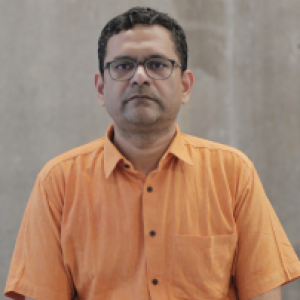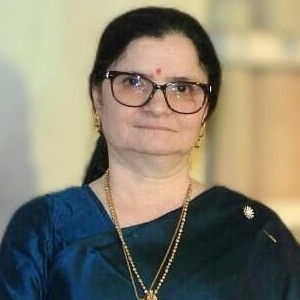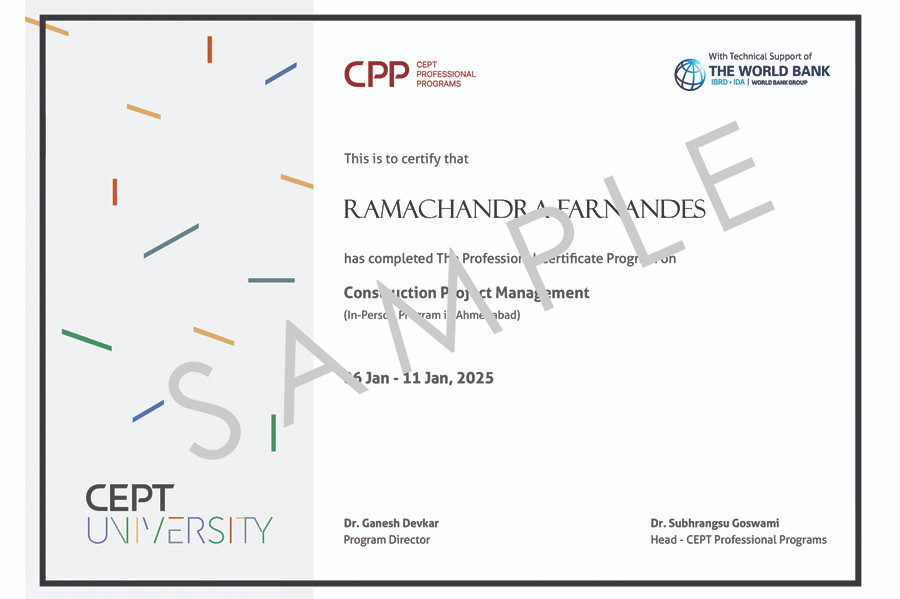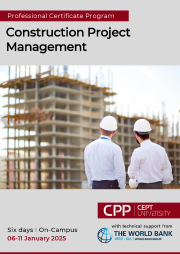- 06 Jan 2025 to 11 Jan 2025
- 06 Days
- On Campus
- Co-branded Certificate from CEPT University and The World Bank
- INR 87000 + GST
(Please refer to the brochure for discount offers) - This Program is open to professionals across various fields, including practicing civil and construction engineers, structural engineers, architects, site engineers, project managers, and construction supervisors. It also welcomes participants from related sectors such as real estate and infrastructure development.
About
CEPT Professional Programs (CPP), CEPT University with technical support from the World Bank, presents a six-day long co-branded intensive Professional Certificate Program on Construction Project Management. This on-campus program is meticulously designed for professionals seeking to deepen their knowledge and enhance their skills in managing construction projects efficiently and effectively.
The course provides participants with a comprehensive understanding of key concepts, tools, and techniques in construction project management. Through a blend of theoretical insights and practical case studies, the program addresses crucial areas such as project planning, risk management, cost estimation, contract administration, and quality control.
Participants will benefit from interactions with expert faculty from CEPT University and industry leaders, as well as insights into global best practices supported by the World Bank’s extensive knowledge base. The program aims to equip professionals with the ability to manage construction projects from conception to completion, ensuring adherence to timelines, budgets, and quality standards.
By the end of this certification, participants will emerge with the confidence and competence to tackle complex challenges in construction management and contribute to the successful delivery of projects in today's dynamic infrastructure landscape.
Program Faculty

Ganesh Devkar
Lean Project Delivery, Public Private Partnerships, Megaprojects
Sr. Associate Professor, CEPT University
Jyoti Trivedi
Construction management, Contract management, IT in Construction (BIM)
Sr. Assistant Professor, CEPT University
Devanshu Pandit
Project management , Mass Housing , Waste Management, Water Supply & Sewerage
Adjunct Professor, CEPT UniversityGuest Speakers

Bhargav Dave
Lean Project Delivery,
Building Information Modelling
Founder and CEO at VisiLean Oy 
Anindo Chatterjee
Social Sustainability, Social Risk Management, Environment, Social & Governance (ESG)
Sr. Social Development Specialist, The World Bank
Manish Trivedi
Structured finance, M&A, ESG, Due Diligence
Finance and Management Professional, Consultant P&L
Virat Kumar Dhebar
Quality Management, Operations Management
Founder & CEO at Knowledge Kraft
Vandana Bhatt
Construction Law, Construction management
Adjunct Associate Professor, IIT Bombay
Sagar Deshmukh
Strategic Policies and Planning, Road Asset Management and Innovative Designs
Executive Director of LASAProgram Structure
The program will be conducted over 06 days with focus on following:
-
Day 1
The first day of the program begins with an exploration of the conceptual stage of a construction project, emphasizing the analysis of Political, Economic, Social, Technological, Environmental, and Legal (PESTEL) factors. Participants will examine the problems that the project aims to address and engage in comparing various options to tackle these focal issues. The session will also cover project scoping, highlighting its importance in the overall conceptualization process. Subsequent sessions focus on critical aspects of stakeholder management and technological viability in construction projects. Participants will learn how to identify stakeholders and manage their engagement, using real-life construction project examples to create a stakeholder register. The day concludes with a discussion on assessing the technical feasibility of construction projects and the significance of selecting optimal project locations. This analysis is essential for ensuring project success and resilience in meeting user demand amid uncertainties.
-
Day 2
On the second day of the program, participants delve into the crucial aspects of risk management throughout the project lifecycle. The first session emphasizes the importance of identifying diverse project risks, assessing their severity, and developing effective risk response and control strategies to mitigate potential impacts. Following this, the program shifts focus to financial considerations, highlighting the preparation of realistic cost estimates during the project appraisal stage. Participants will learn about the significance of block cost estimates and cost breakdown structures to understand various financial commitments. The final sessions of the day center on Financial Monitoring and Control, covering essential topics such as managing cash inflows and outflows, strategies for working capital management, and overseeing contractor invoices to ensure effective financial management throughout the project lifecycle.
-
Day 3
On the third day, the program focuses on the critical phase of procurement strategy following the assessment of project viability concerning finance, risks, stakeholders, and technology. The first two sessions emphasize the onboarding of consultants and contractors, covering key topics such as determining procurement strategies, various types of contract agreements, designing bidding processes, and clarifying the roles and responsibilities of different consultants involved in the project. The program then delves into the Engineering, Procurement, and Construction (EPC) model, exploring its context, the drafting of EPC contract agreements, and the selection and monitoring of EPC contractors. The final session introduces the Public Private Partnership (PPP) model as an innovative procurement strategy widely used in infrastructure delivery. Participants will examine different types of PPP models, their characteristics, and review examples of successful PPP projects across various infrastructure sectors.
-
Day 4
On the fourth day, the program emphasizes the importance of developing a comprehensive project plan that includes detailed scheduling, monitoring, and control mechanisms. The first two sessions focus on various planning and scheduling tools, such as Critical Path Method (CPM) and Program Evaluation and Review Technique (PERT). Participants will gain hands-on experience with MS Project software to effectively plan and schedule projects. Additionally, the sessions will cover the establishment of baselines for tracking, monitoring, and controlling projects using Earned Value Management and performance indicators. The latter sessions address the challenges of conventional construction processes, which often result in fragmented teams and communication breakdowns that lead to delays and increased costs. Participants will explore the necessity of integrated and collaborative approaches in construction. The sessions will introduce technology enablers that enhance planning, coordination, and execution of projects, highlighting the use of Building Information Modeling (BIM) and Lean practices for real-time collaboration, clash detection, and overall improved project management efficiency.
-
Day 5
The fifth day of the program focuses on crucial dimensions of project execution, emphasizing quality, health and safety, environment, and social considerations, and contract management. The first two sessions focus on contract management, which is vital for effective project execution and meeting client expectations after work has been awarded to contractors. First session covers contract administration and claims handling, with a focus on managing scope changes, force majeure claims, and time extensions. Finally, session two discusses equitable dispute resolution, arbitration processes, and the critical aspects of contract closure and asset handover, ensuring a smooth transition post-project completion. Session three discusses socio-economic analysis, underscoring their significance in ensuring successful project outcomes. The latter part of the day shifts attention to planning and monitoring of health and safety management and quality assurance and control processes, highlighting the importance of integrating these dimensions during the design and procurement phases.
-
Day 6
Day six includes an insightful site visit to a construction site, where participants will explore advanced construction techniques. Following this, there will be an office visit dedicated to understanding digital construction and project delivery methods. The day continues with Session 1, which delves into lean principles and various lean tools applicable to construction sites. This session will emphasize how these tools can enhance efficiency and reduce waste in construction processes. Session 2 then shifts the focus to the adoption of lean tools in project delivery within the public sector, discussing strategies to optimize project outcomes through lean methodologies.
Applications and Admissions
This program is offered in In-Person mode and open to professionals across various fields, including practicing civil and construction engineers, structural engineers, architects, site engineers, project managers, and construction supervisors. It also welcomes participants from related sectors such as real estate and infrastructure development.
Applications are open. The program deadline is tentative, and applications will be reviewed on a rolling basis. Seats are allocated on a first-come, first-served basis, and admissions will close once all seats are filled.
Participants will receive a co-branded certificate from CEPT University and the World Bank on successful completion of the program with a minimum of 80 percent attendance.
Sample Certificate



